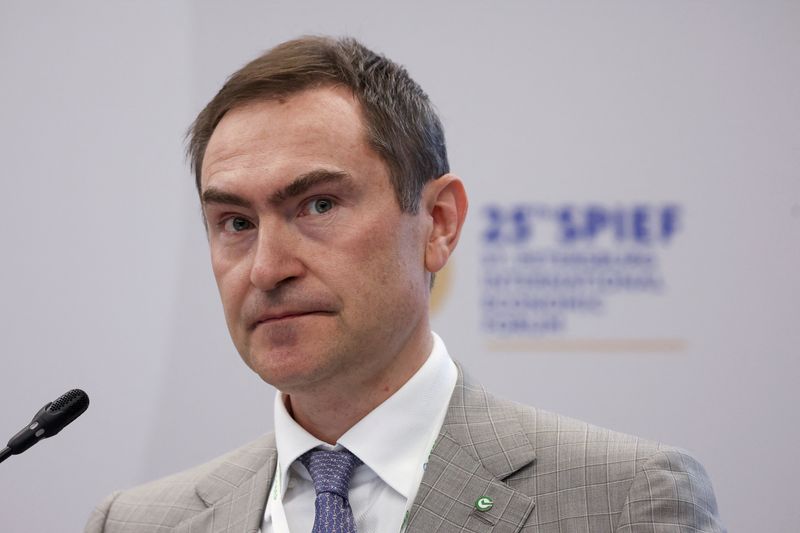Physical Address
304 North Cardinal St.
Dorchester Center, MA 02124
Physical Address
304 North Cardinal St.
Dorchester Center, MA 02124

Gleb Bryansky and Elena Fabrichnaya
MOSCOW (Reuters) – Russia has the potential to improve its position in global artificial intelligence rankings by 2030 despite Western sanctions thanks to talented developers and its own generative artificial intelligence models, the first deputy CEO of Russia’s biggest lender Sberbank told Reuters.
Some AI developers have left Russia in recent years, notably fleeing mobilization for the 2022 conflict in Ukraine, but Alexander Vedyakhin said people were returning home, lured by new opportunities, and said it was vital to continue to encourage experimentation in the sector.
Russia lags behind the United States and China, the world’s leading AI pioneers, by six to nine months in a number of parameters, but that could change quickly, he said.
“I am convinced that Russia can significantly improve its current positions in international rankings by 2030 through its own development and accompanying regulation in the field of generative artificial intelligence,” said Vedyakhin, whose bank is leading the development of artificial intelligence in Russia.
“The (Western) sanctions were aimed at limiting Russia’s computing power, but we are trying to make up for it with our talented scientists and engineers,” he said in an interview authorized for publication on Thursday.
Russia currently ranks 31st out of 83 countries for AI deployment, innovation and investment in Tortoise Media’s Global AI Index, far behind not only the United States and China, but also other BRICS members India and Brazil.
Speaking at Sberbank’s annual AI Journey conference on Wednesday, President Vladimir Putin said Russia would develop artificial intelligence with its BRICS partners and other countries in an attempt to challenge US dominance in one of the most promising technologies of the 21st century.
Vedyakhin said Russia will not compete with the US and China in building massive data centers, but instead will focus on developing smart AI models similar to Meta’s (NASDAQ: ) large language model Meta AI, known as Llama.
Large Language Models (LLM) mine vast amounts of text to summarize information and generate content. They can answer questions, for example, with sentences that read as if they were written by humans.
‘HERRING UNDER KUZNA’
Vedyahin said that Russia’s generative artificial intelligence models will guarantee the country’s technological sovereignty.
“I believe that every country that sees itself as independent on the world stage should have its own big language model,” Vedjahin said. Russia is among 10 countries developing their own national generative AI models.
Vedjahin pointed out the weaknesses of English-trained models in national markets, where they often do not understand the local context.
For example, he said that a typical Western LLM would draw a fish wearing a fur coat, rather than a dish, when asked to draw a popular Russian dish, commonly called ‘herring under a fur coat’.
Vedyakhin said China, and Europe in particular, is losing its edge in the field of artificial intelligence due to over-regulation, adding that he hopes Russia will maintain regulation that supports artificial intelligence in the future.
“If we deny our scientists and big corporations the right to experiment now, it will stop the development of technology.” “As soon as bans appear, we can start losing the race in artificial intelligence,” Vedjahin said.
“Here, people are not punished for experimenting.” If some mistakes happen, it is not something terrible with serious consequences. “The longer we maintain this, the greater the chances that Russia will be among the leaders in AI technology,” he said.
Despite an overall decline in venture capital investment in Russia, investment in AI startups continues to grow, Vedjahin said, signaling future fragmentation of a market currently dominated by Sberbank and the tech company Yandex (NASDAQ:).

Vedyakhin said the emergence of decentralized autonomous organizations (DAOs) – where AI workers communicate with the help of blockchain technology – could help Russia deal with labor shortages.
“In such a DAO, there can only be one human, the CEO or the owner, and everything else is done by artificial intelligence agents,” he said, predicting that DAO could be widely used in Russia in 3-5 years.